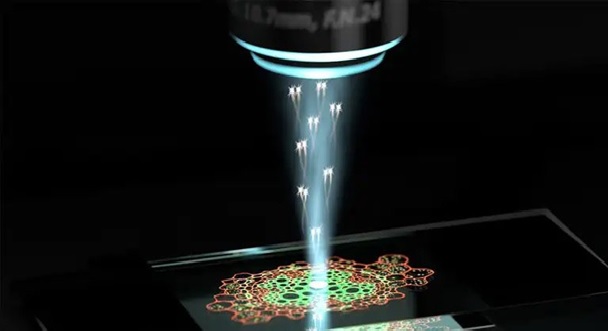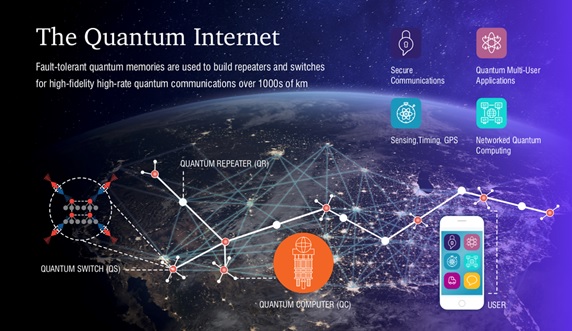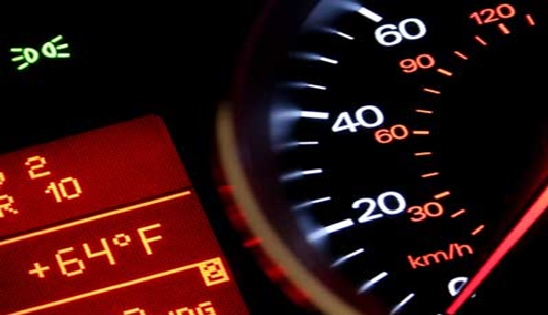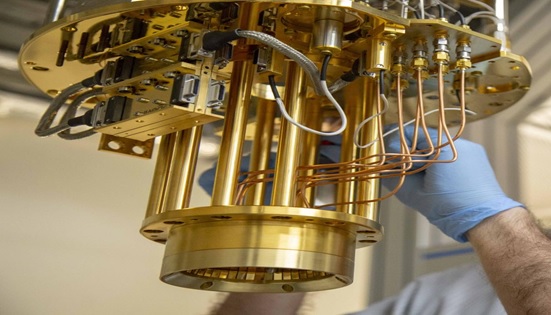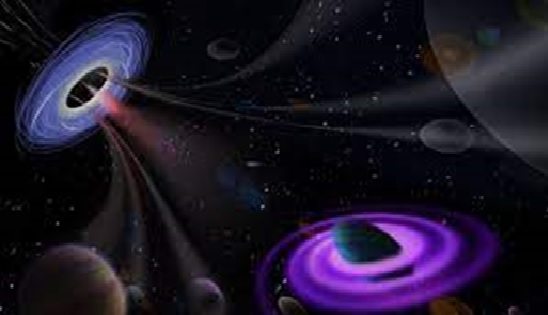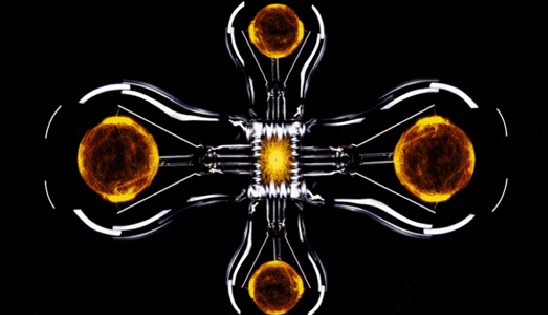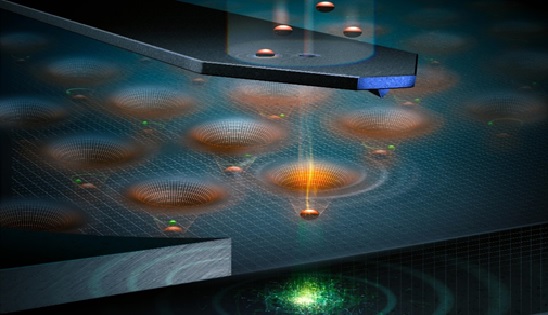Identifying gravitational wave using Quantum Computing
A team from the University of Glasgow's School of Physics & Astronomy have developed a quantum algorithm to drastically cut down the time it takes to match gravitational wave signals against a vast databank of templates.
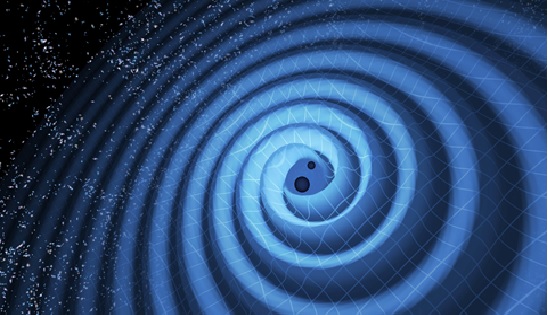
Figure 1. Quantum computing is used to identify gravity wave signals.
Figure 1 shows, a new method of identifying gravitational wave signals using quantum computing could provide a valuable new tool for future astrophysicists.
This process, known as matched filtering, is part of the methodology that underpins some of the gravitational wave signal discoveries from detectors.
Those detectors, the most sensitive sensors ever created, pick up the faint ripples in spacetime caused by massive astronomical events like the collision and merger of black holes.
Matched filtering allows computers to pick gravitational wave signals out of the noise of the data collected by the detector. It works by sifting through the data, searching for a signal which matches one out of potentially hundreds of trillions of templates. [1]
Although this process made it possible to detect numerous gravitational waves since LIGO recorded its first signal in September 2015, it has required a lot of time and resources.
The team describes how the process can be greatly accelerated by using a quantum computational technique called Grover’s algorithm.
Glasgow Team first adapted Grover’s algorithm to search for gravitational waves. While quantum computers capable of processing data using Grover’s algorithm are still under development.
They demonstrate how they applied it to search for gravitational waves using software they developed using the Python programming language and Qiskit, a tool for simulating quantum computing processes. [2]
The system is capable of a speed-up in the number of operations proportional to the square-root of the number of templates.
Current quantum processors are much slower at performing basic operations than classical computers, but as the technology develops, their performance is expected to improve.
Dr. Gao said: “Matched filtering is a problem that Grover’s algorithm seems well-placed to help solve, and we’ve been able to develop a system which shows that quantum computing could have valuable applications in gravitational wave astronomy.
The cross-disciplinary work that Dr. Gao and I led has demonstrated the potential of quantum computing in matched filtering. As quantum computers develop in the coming years, it’s possible that processes like these could be used in future gravitational wave detectors.
References:
- Source: https://phys.org/news/2022-04-algorithm-quantum-gravitational.html
- https://worldnationnews.com/new-algorithm-could-be-a-quantum-leap-in-search-of-gravitational-waves-capital-of-the-country/
- https://mixpoint.in/breaking-news/2022/04/new-algorithm-could-be-quantum-leap-in-search-for-gravitational-waves/
Cite this article:
Sri Vasagi K (2022), Identifying gravitational wave using Quantum Computing, AnaTechMaz, pp.29



